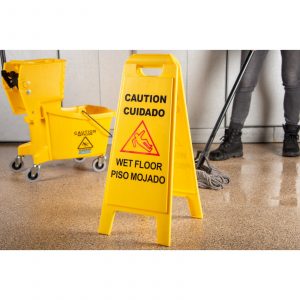Recently, an appellate court issued an opinion stemming from a Georgia slip and fall lawsuit. According to the record, the plaintiff filed a negligence lawsuit against the defendant on May 24, 2019, for injuries she suffered on May 28, 2017. The plaintiff served the defendant with the summons and complaint on August 23, 2019. In response, the defendant answered, claiming that the plaintiff’s service occurred after the applicable statute of limitations. The case illustrates the importance of acting with haste when filing a personal injury claim.
According to the court’s opinion, the parties agreed upon a scheduling order and submitted it to the court. The order notified the court that the plaintiff’s attorney’s co-counsel was a General Assembly member, and was entitled to a statutory leave of court, starting on January 6, 2020. However, on December 13, 2019, the defendant moved to dismiss the complaint based on the statute of limitations. The defendant argued that the plaintiff failed to effectuate service. The plaintiff’s response was due on January 13, 2020; however, she did not respond, and the court dismissed her claims. On appeal, the plaintiff argued that the trial court erred in ignoring co-counsel’s statutory leave, when it granted the defendant’s motion to dismiss.
In Georgia law, if an attorney is a member of the General Assembly, the court must grant a continuance and stay of all aspects of the pending case. This includes the requirement that the attorney respond to any pending motions. However, the text of the statute is unclear whether it only applies to the lead counsel or, as is the case here, to co-counsel as well.
 Atlanta Injury Attorney Blog
Atlanta Injury Attorney Blog



